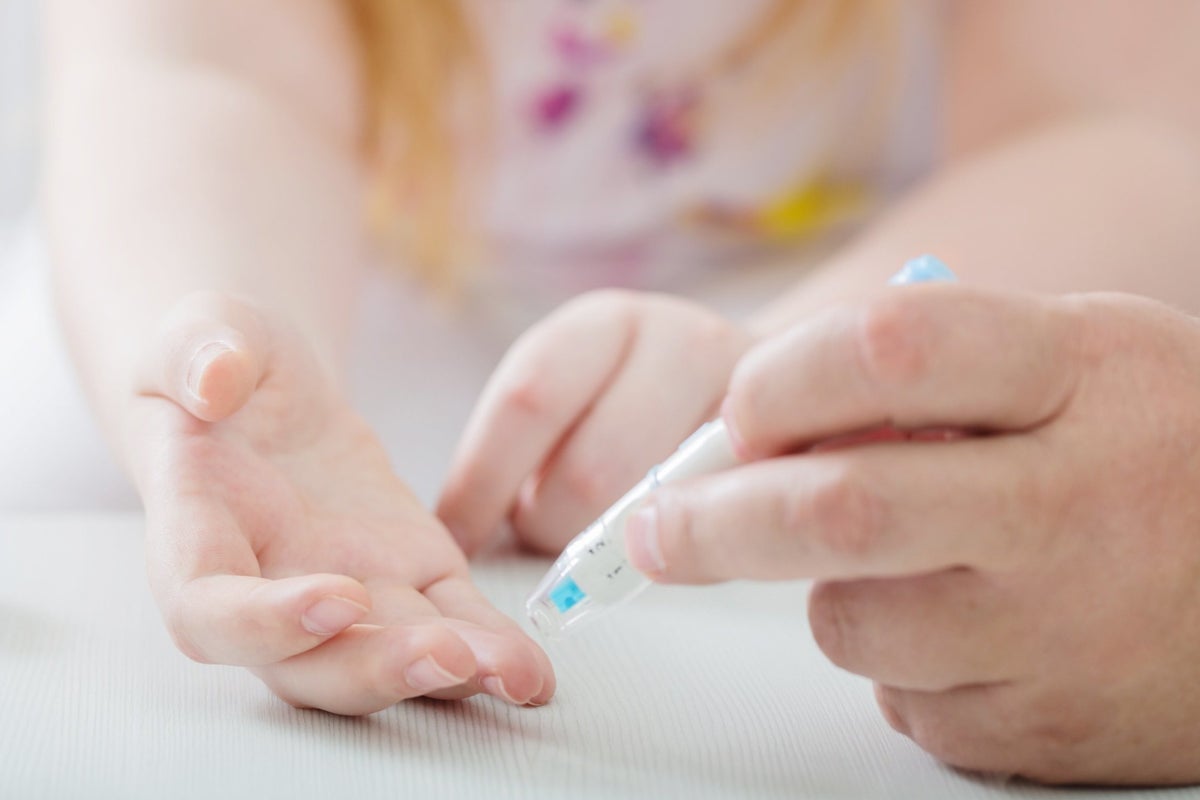
Scientists have discovered the reason why type 1 diabetes is more severe and aggressive among young children, which experts say could change the way the condition is treated and prevented.
Type 1 diabetes, in which the immune system destroys the insulin-producing cells in the pancreas, often develops more rapidly in young children under the age of seven, and increases the likelihood of medical emergencies and requires higher doses of insulin.
Researchers from the University of Exeter have found that in young children with type 1 diabetes nearly all their insulin-producing cells are being destroyed before they can mature.
Professor Sarah Richardson, the study’s lead author, from the University of Exeter, said: “These tiny insulin-producing beta cell clusters – once overlooked – hold big clues to understanding type 1 diabetes.
“This new perspective has the potential to reshape how we screen, treat, and even prevent type 1 diabetes. Protecting small beta cell clusters early could be key to stopping type 1 diabetes before it starts.”

When eight-year-old Gracie Nye from Merseyside was a toddler, she went from having what her parents believed was a cold to lying unconscious in a hospital bed.
She was 23 months old when she was diagnosed with type 1 diabetes. Her dad, Gareth Nye, said: “We lived in constant fear, setting alarms every two hours to finger prick her at night, worrying if she’d still be with us in the morning.”
Gracie had diabetic ketoacidosis, a severe complication of diabetes, in which a lack of insulin causes harmful substances called ketones to build up in the blood.
Mr Nye said: “Research like this, and the possibilities it holds, will be vital in reducing the number of children diagnosed in critical care, like Gracie. It gives us confidence that one day she could be free from her condition – and that fewer parents and children will have to go through this same experience.”

In the study, published in Science Advances, scientists researched insulin-producing cells, which are found in clusters in the pancreas. These clusters are still developing in young children and only contain a few insulin-producing cells.
After analysing rare pancreas samples of more than 250 people with and without type 1 diabetes, they found that young children without type 1 diabetes have large amounts of small clusters of insulin-producing cells.
But in young children who do have type 1 diabetes, the researchers saw that these small clusters were almost completely absent after being destroyed by the immune system.
Around 400,000 people in the UK suffer from type 1 diabetes. According to the Diabetes UK charity, it affects around 1,700 children under 5.
Professor Richardson said: “This research underscores the critical role of these small clusters in healthy pancreas development and opens the door for new treatments to protect children’s small clusters of insulin-producing cells, giving them the chance to mature into large clusters that are less vulnerable to the immune attack.
“It also strengthens the case for early type 1 diabetes screening – particularly in young children – essential for identifying those in the early stages of type 1 diabetes before these crucial cells are lost.”
Peter Sullivan: ‘I’ll carry burden of wrongful imprisonment until apology given’
Scientists dig up two-tonne whale head found on Cornwall beach in 10-hour mission
The common foods linked to pre-cancerous growths in new study
Common virus jab could be key in fight against multiple sclerosis
How US evangelicals are using Trump’s cuts to attack women’s rights
The vaccine that could also prevent pregnancy complications later in life







